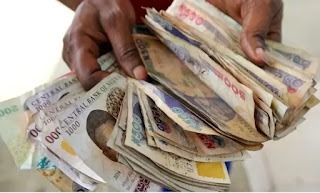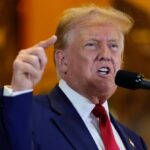The International Monetary Fund (IMF) has indicated that Nigeria’s currency, the naira, is beginning to stabilize following recent economic interventions. The IMF attributed this development to the Central Bank of Nigeria’s (CBN) efforts to clear outstanding foreign exchange backlogs and raise interest rates, measures aimed at stabilizing the economy. ...Tap To Read The Full Story Here | ..Tap To Read The Full Story Here...
During a press briefing in Washington DC on Tuesday, the IMF acknowledged the impact of these policies.
“In Nigeria, rate hikes and the clearing of overdue domestic central bank foreign exchange obligations have helped the naira show more signs of stability,” the IMF stated in its report.
Speaking at the same conference, Tobias Adrian, the IMF’s financial counsellor and director of monetary and capital markets, highlighted the CBN’s progress in curbing inflation and stabilizing the forex market.
“The central bank has been transitioning to an inflation-targeting regime and has liberalised the exchange rate, which we welcome,” Adrian said.
He further emphasized the appropriateness of the CBN’s rate hikes, given the persistent inflation challenges. “The rate hikes implemented so far have been appropriate, especially given the challenges posed by high inflation, which still stands around 30 percent.”
Despite recent improvements, the naira has faced considerable struggles in 2024. On October 16, the World Bank reported that the naira remains among the weakest-performing currencies in sub-Saharan Africa.
The report linked the currency’s depreciation to increased demand for dollars and insufficient foreign currency inflows.<..ALSO THE V-CLIP OF THE ARTICLE IS HERE..>
However, the IMF noted signs of recovery in recent months, with the naira fluctuating between N1,700 and N1,600 per dollar in the parallel market, while stabilizing between N1,500 and N1,600 in official exchange markets.👉 For More READ FULL CONTENT FROM THE SOURCE ↔️



